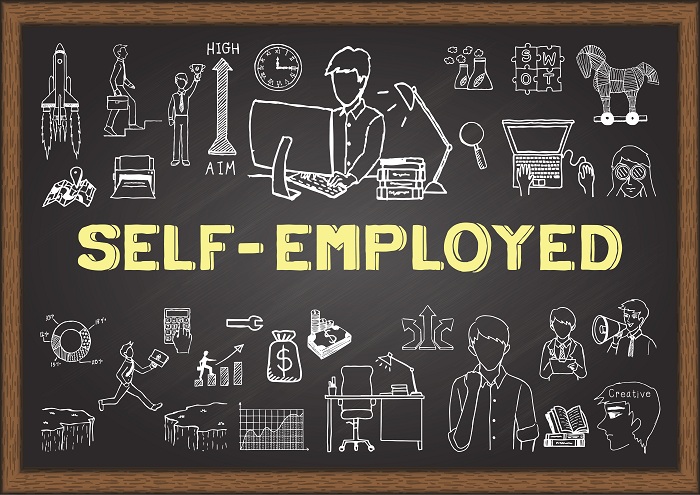
What if you have business income and you don't know about it?
Auto salespersons, construction contractors, cleaning businesses, and Uber drivers are all considered business owners. Therefore, CRA deems you a business owner if you earn income from any of those activities.
What if I only earn a little, do I need to report that income?
Even if you earn a little bit of money, any income is considered the same - every penny earned must be reported! If you ran your business for a short period and didn't continue, you still have business income for that year. In CRA's eyes, you are still considered a business owner even after deducting all your expenses from your income and without any profit to show.
If I earn income, do I have to register my business?
You are not required to register your business, and no business number is needed unless you are running a corporation. Most self-employed people run their business under their name as the business name. In all Canadian provinces and territories, any self-employed business is considered to be operating as a sole proprietorship.
Where do I report business income? Do I need to file a separate return?
No, you do not need to file a separate return. Like all income, you have to declare your business income on your personal income tax return. In addition, any income from your business activity, even the smallest amount, must be reported on the self-employment section of your return, using Form T2125 – Statement of Business or Professional Activities.
Net business income is reported on Line 13500 of the income tax return-T1 Return
What should I keep track of?
Keep a copy of all invoices received along with any cash totals from your business. Gross income is your total income before you deduct any expenses, including those related to the goods sold. Your income records must include the date, amount, and source of the income.
Supporting all income entries with original documents will include:
Direct cost - For many businesses, there is a direct cost to making a sale. This is also known as the cost of goods sold (COGS). For example, selling your product for $50 may have required you to buy $10 in materials and spend $20 in labour. Without spending that $30 you would not have had a product to sell. So the resulting gross profit in this example is $20.
Business Expenses - All businesses have operating costs that they must pay for regardless of selling any goods or services. Things such as advertising, office expenses, rent or insurance have no direct tie to your business income; these are what we call fixed expenses. So even if you earned zero income, you still have to bear these costs.
As there is no actual sale happening, you can request the CRA to defer payment of tax until the property is finally disposed of. The CRA will require a satisfactory security deposit to allow this deferment.- Form T1244.
Expenses- Record Keeping
Always get receipts when you purchase anything for the business. The receipts have to show the following:
Important : What Type of Expenses Can You Claim?
The general rule is that you can claim any expense as long as it's related to earning income for your business. Keep all documentation to support the claim. If you have any doubt, check the CRA website for guidance.
Business Operating Expenses
Every business has its own needs that influence how you spend money to make money. If your revenue depends on the goodwill of your clients, you might buy them lunch or gifts to keep these relationships active.
If your business depends on delivery vehicles: fuel, parking, insurance, and repairs are reasonable expenses. Lawyers, accountants, and professional fees can be claimed as these costs are considered business expenses.
Home Office Expenses
A home office can be claimed as business use if you use the space to only earn business income and meet clients regularly. If you have an office at your shop or store and bring work home, the CRA will not allow you to claim your home office space.
Use the business percentage to claim related home expenses, such as mortgage interest or rent, property tax, utilities (hydro, electricity, & water), and home insurance.
Capital Property
Business income and expenses are reported using an accrual method of accounting (i.e., reported in the year they are earned/incurred), even though they are not received. Business income and expenses are generally reported on a calendar year basis.
I am self- employed- Can I apply for EI?
Self-employed people can now register with Service Canada to be eligible to receive Employment Insurance and special benefits such as maternity, parental, sickness and compassionate care benefits.
Instalment payments
The Canada Revenue Agency sends an instalment reminder every year. If instalments are not paid on specified dates (i.e., 15th of March, June, September and December), interest and penalty becomes payable.
Canada Pension Plan
If your net self-employment income is more than $3,500, you will have to contribute to the Canada Pension Plan (CPP).
| Year | Maximum Pensionable Earnings | Rate | Self- employed Maximum CPP contribution |
|---|---|---|---|
| 2021 | $61,600 | 10.90% | $6,332.90 |
CPP is not paid separately. This becomes payable, on, or before, April 30th, 20xx. However, one can file a personal tax return on or before June 15th, 20xx without paying a late-filing penalty.
How do I pay the CRA?
For more information on payment to the CRA, please visit: Learn More
Posted on 21 Oct 2021


